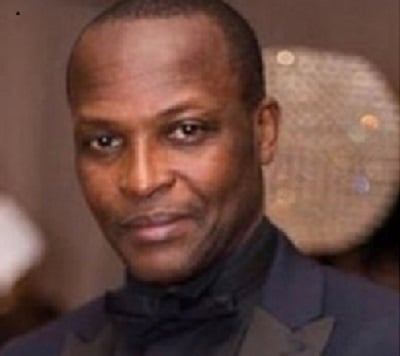The Ghanaian music scene was recently embroiled in a controversy involving dancehall artist Stonebwoy, his manager Chief Stylz, and Dennis Tawiah, CEO of Akwaaba UK, a prominent event organizing company. The dispute centered around scheduling conflicts for Stonebwoy’s UK album tour, specifically a performance slated for March 8th, which coincided with an Independence Day event planned by Akwaaba UK. Chief Stylz accused Akwaaba UK of deliberately sabotaging Stonebwoy’s tour by scheduling their event on the same date, claiming they had booked the March 8th slot back in October, well before Akwaaba UK’s announcement. This accusation sparked a heated exchange between Tawiah and Chief Stylz during a live phone-in session on Hitz FM.
Tawiah vehemently denied the sabotage allegations, asserting that Akwaaba UK had secured the March 8th date for their Independence Day event long before Stonebwoy’s team announced their tour plans. He challenged Chief Stylz’s claim of booking the date in October, insisting that Stonebwoy’s team only contacted Akwaaba UK regarding the tour and the March 8th date in January 2025. The conflicting timelines presented by both parties became the crux of the public disagreement. Tawiah, visibly agitated by the accusations, threatened to release details of previous conversations between his team and Stonebwoy’s management to prove his version of events and clear Akwaaba UK’s name.
While Chief Stylz maintained that Stonebwoy’s team had secured the March 8th date first, he acknowledged Akwaaba UK’s past support in organizing UK performances for Ghanaian artists, including Stonebwoy. This admission added another layer of complexity to the situation, as it suggested a pre-existing working relationship between the two parties. However, this acknowledgement did not deter Chief Stylz from his accusations of sabotage, further fueling the public disagreement and raising questions about the nature of their professional relationship.
The clash between Chief Stylz and Tawiah highlights the often-complex dynamics within the music industry, where competition for dates and venues can lead to misunderstandings and conflicts. The public nature of this dispute, aired on live radio, amplified the situation and brought to light the behind-the-scenes negotiations and arrangements involved in organizing international tours. The contrasting narratives presented by both parties underscore the importance of clear communication and documentation in such arrangements to avoid potential conflicts and maintain professional relationships.
The incident also raises broader questions about the competitive landscape of the Ghanaian music industry and the role of event organizers like Akwaaba UK. The accusations of sabotage, whether true or not, suggest an underlying tension and perhaps a struggle for control over lucrative performance dates. The fact that both parties have a history of collaboration adds an element of betrayal to the narrative, further complicating the situation and potentially damaging the professional relationship between Stonebwoy’s team and Akwaaba UK.
Ultimately, the dispute between Stonebwoy’s management and Akwaaba UK serves as a cautionary tale for artists and event organizers alike. The importance of clear contracts, transparent communication, and established professional relationships cannot be overstated. The fallout from this public disagreement could have lasting implications for all involved, highlighting the need for greater care and consideration in navigating the complexities of the music industry. The conflicting accounts and the public nature of the dispute leave many questions unanswered, potentially impacting the reputations of both parties and influencing future collaborations within the Ghanaian music scene.


